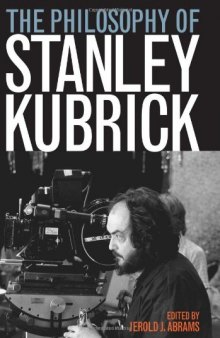 جزییات کتاب
جزییات کتاب
فلسفه، از آغاز، تلاش كرده است تا به قلب سرشت و ماهيتِ انسان رسوخ كند. در سرتاسر اين دوران ــ از عصر يونانيان تا قرون وسطی تا دوران مدرن و امروزه ــ سنت درازدامن و غنیای گسترش يافته كه شاخصهاش تلاش بسيار برای تعريف سرشت انسان است. در اينجا، مرور مختصر برخی از اين تلاشها میتواند به فهم اين مطلب كمك كند كه در فيلمهای كوبريك اوضاع از چه قرار است. يكی از نخستين روشهای فلسفه ديالوگ بوده است، كه به نحو بارزی سقراط و افلاطون آن را در يونان باستان مطرح كردند. در اينجا ايده اين است كه انسانها موجوداتی عقلانیاند، و اينكه ما در جريان مكالمه، و اساساً از طريق پرسشها و پاسخها، بهتر تعقّل میورزيم. با اين روش، با صَرف تلاش بسيار، میتوانيم به حقايق غايی و جاودانه جهان برسيم. افلاطون اين حقايق را «صُور مثالی» ناميد، ذوات واقعيت كه علیرغم سيّاليتِ ماده ثابت باقی میمانند.
نگرش مُضمَر در اين روش اين است كه باورهای متعارف ما درباره موضوعات فلسفیای نظير واقعيت، معرفت، عدالت، و هدف زندگیِ انسانی مطالبی درست راجع به آنها در بر دارد، اما، علاوه بر آن، بهناگزير مطالبی نادرست نيز راجع به آنها دارد. میتوانيم از راه ديالوگی انتقادی اشتباهاتمان را عيان كنيم، و نظريه ايجابیِ درستی را به ظهور برسانيم. دقيقه اين روشْ آغازيدن از باورهای جاری و درگيری نقادانه با ديگران و نيز با خودمان است تا ايدههايمان را اصلاح كنيم.
In the course of fifty years, director Stanley Kubrick produced some of the most haunting and indelible images on film. His films touch on a wide range of topics rife with questions about human life, behavior, and emotions: love and sex, war, crime, madness, social conditioning, and technology. Within this great variety of subject matter, Kubrick examines different sides of reality and unifies them into a rich philosophical vision that is similar to existentialism. Perhaps more than any other philosophical concept, existentialism -- the belief that philosophical truth has meaning only if it is chosen by the individual -- has come down from the ivory tower to influence popular culture at large. In virtually all of Kubrick's films, the protagonist finds himself or herself in opposition to a hard and uncaring world, whether the conflict arises in the natural world or in human institutions. Kubrick's war films (Fear and Desire, Paths of Glory, Dr. Strangelove, and Full Metal Jacket) examine how humans deal with their worst fears -- especially the fear of death -- when facing the absurdity of war. Full Metal Jacket portrays a world of physical and moral change, with an environment in continual flux in which attempting to impose order can be dangerous. The film explores the tragic consequences of an unbending moral code in a constantly changing universe. Essays in the volume examine Kubrick's interest in morality and fate, revealing a Stoic philosophy at the center of many of his films. Several of the contributors find his oeuvre to be characterized by skepticism, irony, and unfettered hedonism. In such films as A Clockwork Orange and 2001: A Space Odyssey, Kubrick confronts the notion that we will struggle against our own scientific and technological innovations. Kubrick's films about the future posit that an active form of nihilism will allow humans to accept the emptiness of the world and push beyond it to form a free and creative view of humanity. Taken together, the essays in The Philosophy of Stanley Kubrick are an engaging look at the director's stark vision of a constantly changing moral and physical universe. They promise to add depth and complexity to the interpretation of Kubrick's signature films.
 دانلود کتاب
دانلود کتاب
 جزییات کتاب
جزییات کتاب








 این کتاب رو مطالعه کردید؟ نظر شما چیست؟
این کتاب رو مطالعه کردید؟ نظر شما چیست؟
